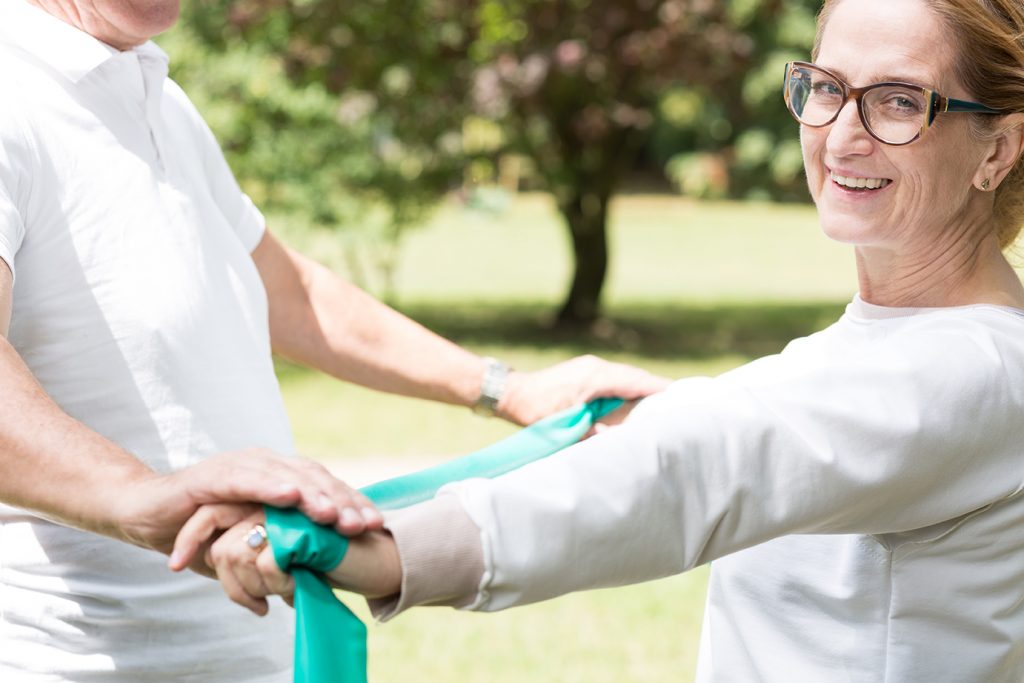What is Exercise?
It’s obvious isn’t it?
Seems like a dumb question right?
Professionals such as Personal Trainers, Physical Therapists, and Chiropractors prescribe it to their clients and patients for a wide variety of reasons; to heal from an injury, to increase your endurance, or make your muscles stronger.
But what is it – exactly – that is being prescribed?

Exercise (n.) A physical or mental exertion, or the removal thereof, most often for the purpose of physical training, to improve health and/or performance. A stimulus/stimuli applied, or removed, over some duration, and/or created from within, a neuromotor control system, resulting in a neuromotor solution/response, with the purpose of eliciting an intended and specific physiological change/state
Dunn K., Mack G, McMillin C., Motor Control; pathology, assessment and improvement philosophical basis, research, and methodology, Muscle System Consortia, 2018 pg. 9.
Now there are some ten-dollar words!
The key phrase in this definition is “with the purpose of eliciting an intended and specific physiological change/state”.
Exercise in our world is an intention to make a physiological change. We are trying to change the body in a certain direction. In other words, exercise is something that we do to intentionally change something about our bodies.
This differentiates exercise from activities of daily living.
Is taking your dog for a walk exercise? No
Is gardening exercise? No
How about playing a sport? No
What about an activity like skiing? No
This does not mean that doing these activities does not contribute to your health in some way. They are just not exercise.
Why is it important to make this distinction?
In order to improve your health and fitness in meaningful ways it must be done with intention. If we are not working toward intentional change then we probably won’t get the changes we want.
We fool ourselves into thinking that gardening, walking the dog, carrying the groceries, or shopping in the mall are enough to change or maintain our physical health. This justifies avoiding the regular and committed discipline of intentional activity to stimulate the body at levels high enough to drive the changes we need to enjoy a healthy and robust physical life.
Not too long ago I was on vacation in Florida with my parents and an uncle. We needed to go to the grocery store to get food. Being in a foreign store we did not know our way around. We had a long list. Since we had no idea where the items were, my uncle walked all around the store searching for the numerous things on the list. When he came back my mom jokingly apologized for having him cover practically the whole store to find what we were looking for.
His reply, “It’s ok! I can use the exercise!”
About a month after that I was with the same uncle at the Corning Glass Museum of Art. It had stadium-like seating in an area where they do demos of the glass making. This type of seating is very steep. Climbing up the steep stairs to exit the demonstration room was quite the effort for one woman.
“Well I got my exercise for the day!” was her statement as she made it to the top.
This past winter I snowboarded more than I had the past couple of years. But I didn’t consider it exercising. I went because I enjoy it. It helps winter go by easier. I didn’t do it with a goal in mind. I am not thinking about my heart rate, or what my legs are doing. I strictly go to have fun. My enjoyment of that activity is the byproduct of the work that I put in with intentional exercise to support my physical ability to snowboard.
I do strength training to try and improve – or at least maintain – my strength and muscle mass. I do the elliptical or ride the bike to challenge my cardiovascular system. All these things I do are so that I can maintain my ability to be active. One of those things of being able to be active is snowboarding.
What are some activities or things that are important to you?
Is it being active like running, skiing, or hiking?
Regular exercise, (given the previous definition) in order to stimulate your muscle system to improve and/or maintain itself, will directly contribute to your physical health and capabilities.
Exercise equals healthy muscles, which equals healthy life!
Co-Written by Greg Mack and Charlie Rowe.
Greg Mack is a gold-certified ACE Medical Exercise Specialist and an ACE Certified Personal Trainer. He is the founder and CEO of the corporation Fitness Opportunities. Inc. dba as Physicians Fitness and Exercise Professional Education. He is also a founding partner in the Muscle System Consortia. Greg has operated out of chiropractic clinics, outpatient physical therapy clinics, a community hospital, large gyms, and health clubs, as well operating private studios. His experience in working in such diverse venues enhanced his awareness of the wide gulf that exists between the medical community and fitness facilities, particularly for those individuals trying to recover from, and manage, a diagnosed disease.
Charlie Rowe, CMSS joined Physicians Fitness in the fall of 2007 after spending 9 years as the Senior Personal Trainer at Oak Hill Country Club in Rochester, New York. He has also worked within an outpatient Physical Therapy Clinic coordinating care with the Physical Therapist since joining Physicians Fitness. Charlie has earned the Cooper Clinic’s Certified Personal Trainer, the NSCA’s Certified Strength and Conditioning Specialist, the American College of Sports Medicine Certified Health Fitness Specialist, Resistance Training Specialist Master Level, and American Council on Exercise Certified Orthopedic Exercise Specialist Certifications.
